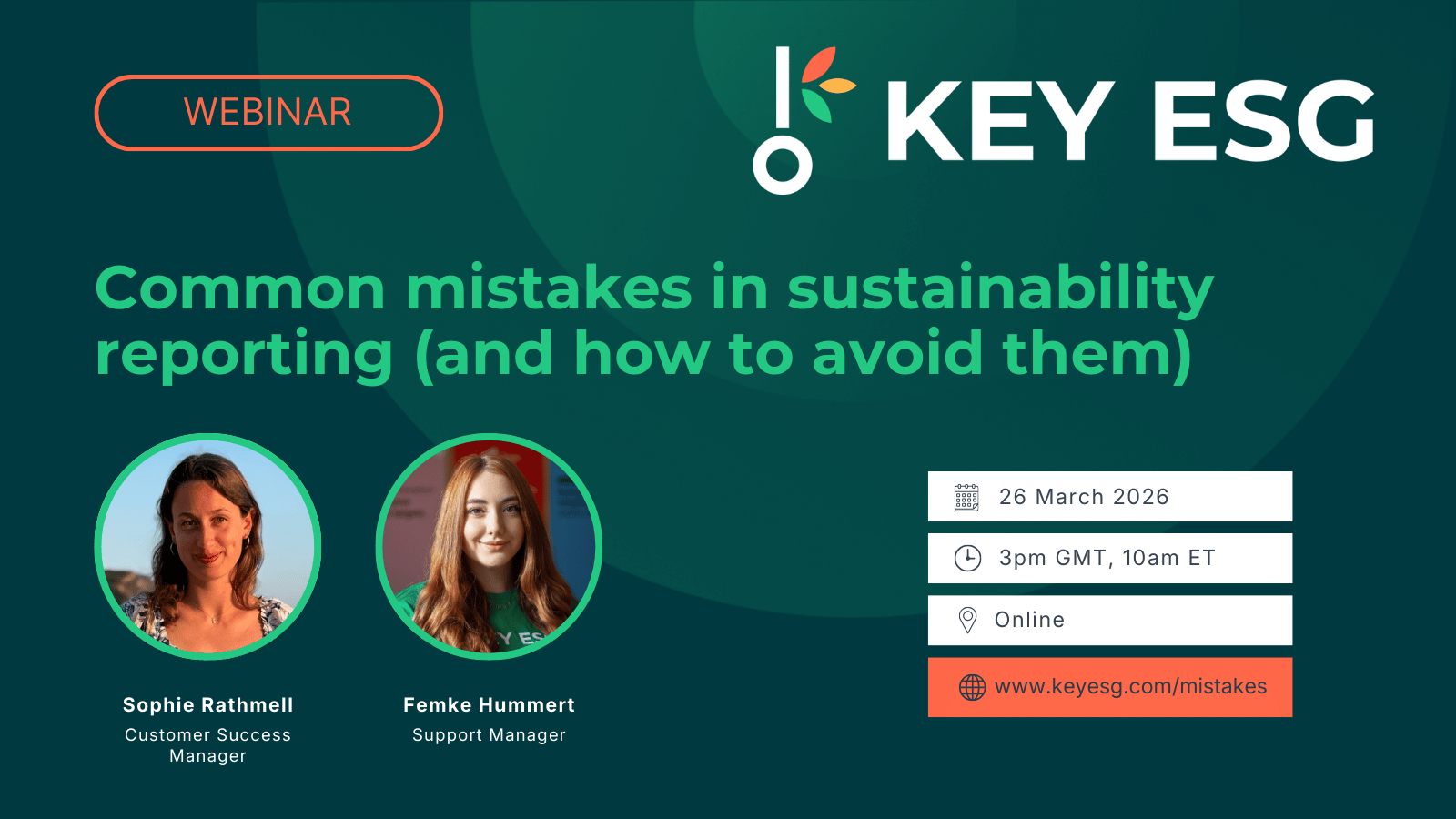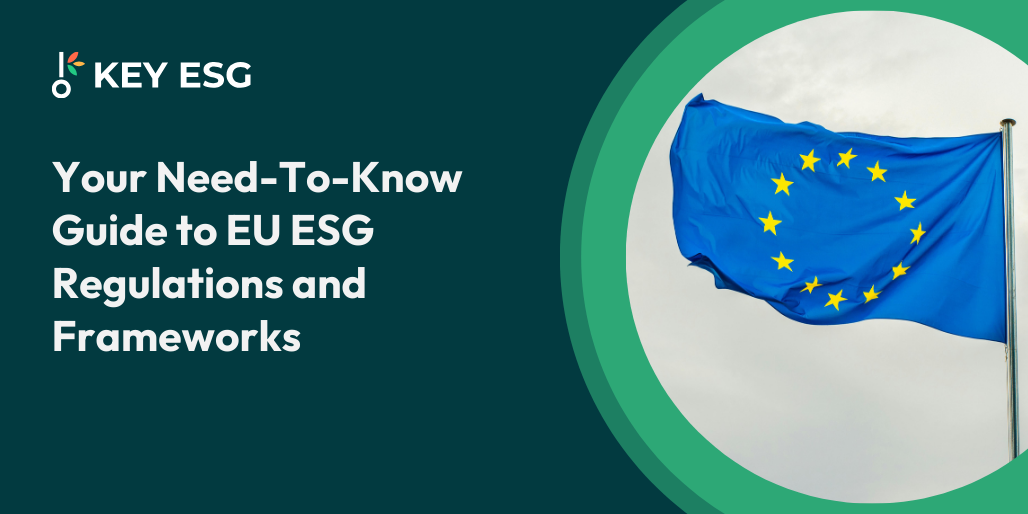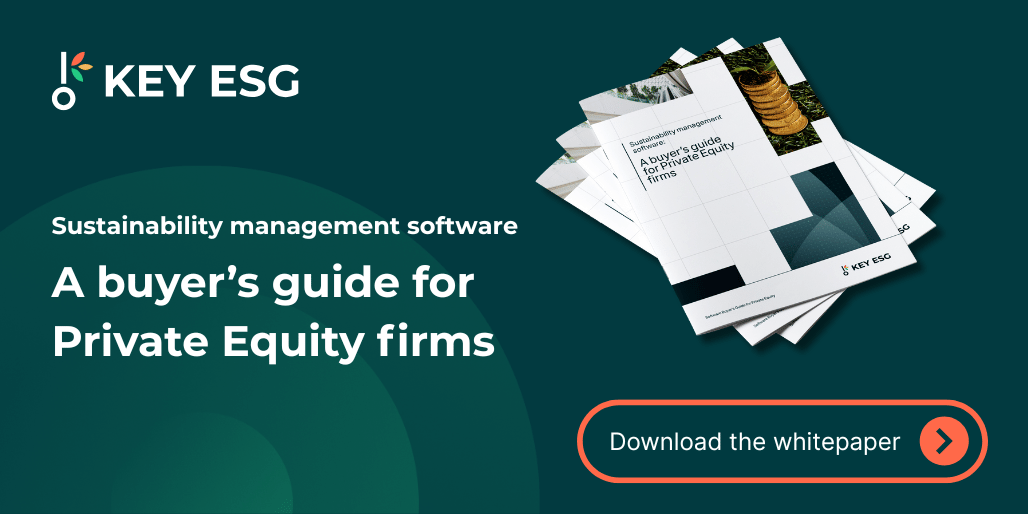What is the UK’s SDR, and will it differ from SFDR?
Published: 21 Apr 2023 · Last updated: 15 Oct 2023
*On the 4th of December, the European Supervisor Authorities published a report containing proposed amendments to SFDR’s regulatory technical standards.
The proposals are:
- Additional disclosures for sustainable investments
- Introducing new, and specifying existing, PAIs
- New disclosures on decarbonisation targets
- Revisions to disclosure templates
The European Commission will now take until March 2024 to decide on the proposals. To find out more, read the report or contact a member of our team. The information in this article is up to date as of December 2023.
What is SDR, and why are ESG experts comparing it to SFDR?
The UK’s Sustainability Disclosure Requirements (UK SDR) aims to encourage transparency in the sustainable finance sector and clamp down on greenwashing.
The European Union's Sustainable Finance Disclosure Regulation (SFDR) shares the same goal and, because of this, many professionals working within the Environmental, Social, and Governance (ESG) sector initially believed that the SDR would follow in the footsteps of its European counterpart.
The Financial Conduct Authority (FCA) published a consultation paper in October 2022. It has since become clear that the two regulations are distinct from one another. This blog will compare the two sets of regulations, and consider the ways SDR may evolve before its implementation next year.
Background context on the SFDR and the UK SDR
The SFDR was a flagship piece of legislation in the EU’s drive towards increased transparency in sustainable investments. Regulations were applied at firm-level, fund-level, and at asset-level. Individual portfolio companies must disclose extensive information regarding their funds' ESG performance using the principal adverse impact indicators (or PAIs).
For more information on PAIs, see the following articles:
- Introducing the Principle Adverse Impacts (PAIs)
- A complete list of SFDR Principle Adverse Impact Indicators (PAIs)
- Greenhouse Gas Emissions and Principal Adverse Impacts (PAIs)
The PAIs include scopes 1-3 emissions data. This was the first regulation to require such detailed quantitative detail, representing a shift towards more rigorous ESG requirements from smaller entities.
There has been significant pushback from the European financial market regarding these asset-level requirements. Difficulties with regard to data collection have been highlighted, along with the extensive time and resources required for reporting. There have been many iterations of the regulations since they were first proposed in early 2021.
This has resulted in a year-long delay. Fund managers therefore don't need to submit their first PAI report until the middle of 2023.
The October 2022 FCA Consultation Paper on SDRs
As a result of the controversy surrounding the SFDR data requirements, the UK's alternative has been highly anticipated. ESG professionals were looking forward to seeing how the UK would work from this feedback to create its own equivalent set of regulations.
The October 2022 consultation paper provides extensive detail on the proposed regulations. The consultation period closes at the end of January, and KEY ESG has been providing feedback to the FCA.
KEY ESG does a lot of work with both fund managers and portfolio companies in SFDR compliance. We have seen the practical challenges that private equity firms and venture capitalists face when collecting data. We also have a detailed understanding of the main methods they tend to use. We were therefore able to build on our experience and apply our own research and knowledge to offer the FCS a unique perspective.
We have worked with both the British Private Equity & Venture Capital Association (BVCA) and law firm Fieldfisher to give detailed feedback. Below are some takeaways from the consultation paper.
What to expect from the SDR:
SDR is a labelling regime and SFDR is a disclosure regime
The SFDR described itself as a disclosure regime. But the use of Article 8 and Article 9 fund classification meant that these regulations quickly became used as a labelling regime. This was not the European Commission's original intention. For further details on Article 8 and 9 funds, see our previous blog. The FCA has acknowledged this development, and has decided to explicitly make SDR a labelling regime.
This regime is made up of three distinct fund classifications:
- Sustainable focus
- Sustainable improvers
- Sustainable impact
There is no hierarchy between these labels, which sets this legislation apart from Article 8 and 9 funds. Instead, they differ based on the nature of the objective of the fund and the route by which they achieve positive sustainability outcomes.
SDR will align with existing frameworks
The FCA has made it clear that they are not starting from scratch with this framework. They recognise the parallel reporting requirements that many FMPs face when operating across multiple jurisdictions. They aim to minimise their reporting burden.
In addition, the FCA wishes to “support the flow of consistent, comparable and reliable information along the investment chain internationally”.
Firm-level disclosure requirements will be based on the Task Force on Climate-Related Financial Disclosures (TCFD). The TCFD's four pillars are:
- Governance
- Strategy
- Risk management
- Metrics and targets
These align with the global International Sustainability Standards Board (ISSB) standards, which also uses TCFD as a baseline.
The FCA's paper maps how SDR compares to both SFDR and the new SEC regulations recently implemented in the US.
We do not expect SDR asset-level requirements to be as burdensome as SFDR
The FCA's paper states that there will be no equivalent to the PAIs in the SDR. This massively reduces the burden on portfolio companies.
This does not necessarily mean that a PAI equivalent won’t be introduced in the future. The paper notes that it intends to update its disclosure requirements in line with development of the ISSB framework. This framework is currently in draft form.
The SDR’s alignment with TCFD means that there will still be significant data burdens on portfolio companies. Firms will disclose scopes 1-3 emissions, as well as other climate-related information.
Despite the FCA's attempts to make explicit comparisons to other existing frameworks, it is clear that fund managers currently working on SFDR compliance will have extra work cut out for them to comply with SDR regulations. There have already been complaints that funds classified as Article 8 or 9 under SFDR do not qualify for any of the SDR labels. This goes to show the difference in qualifying criteria between the two regulations.
KEY ESG's involvement with the FCA's feedback process has meant that we have been able to ask for more examples of different fund classifications. We've also requested further information on the associated data requirements to ensure that the regulations are grounded in practical detail.
Hassle-free software solutions
KEY ESG's insights into a range of regulations from around the world have been used to develop and design intuitive software to help firms manage ESG reporting.
Fund managers are able to track progress, view metrics, receive digital updates on new legislation, and improve their ESG standing.
If you have any questions at all about SDR, contact our team! Why not request a free demo of our software too?
What is the UK’s SDR, and will it differ from SFDR?
Published: 21 Apr 2023 · Last updated: 15 Oct 2023
*On the 4th of December, the European Supervisor Authorities published a report containing proposed amendments to SFDR’s regulatory technical standards.
The proposals are:
- Additional disclosures for sustainable investments
- Introducing new, and specifying existing, PAIs
- New disclosures on decarbonisation targets
- Revisions to disclosure templates
The European Commission will now take until March 2024 to decide on the proposals. To find out more, read the report or contact a member of our team. The information in this article is up to date as of December 2023.
What is SDR, and why are ESG experts comparing it to SFDR?
The UK’s Sustainability Disclosure Requirements (UK SDR) aims to encourage transparency in the sustainable finance sector and clamp down on greenwashing.
The European Union's Sustainable Finance Disclosure Regulation (SFDR) shares the same goal and, because of this, many professionals working within the Environmental, Social, and Governance (ESG) sector initially believed that the SDR would follow in the footsteps of its European counterpart.
The Financial Conduct Authority (FCA) published a consultation paper in October 2022. It has since become clear that the two regulations are distinct from one another. This blog will compare the two sets of regulations, and consider the ways SDR may evolve before its implementation next year.
Background context on the SFDR and the UK SDR
The SFDR was a flagship piece of legislation in the EU’s drive towards increased transparency in sustainable investments. Regulations were applied at firm-level, fund-level, and at asset-level. Individual portfolio companies must disclose extensive information regarding their funds' ESG performance using the principal adverse impact indicators (or PAIs).
For more information on PAIs, see the following articles:
- Introducing the Principle Adverse Impacts (PAIs)
- A complete list of SFDR Principle Adverse Impact Indicators (PAIs)
- Greenhouse Gas Emissions and Principal Adverse Impacts (PAIs)
The PAIs include scopes 1-3 emissions data. This was the first regulation to require such detailed quantitative detail, representing a shift towards more rigorous ESG requirements from smaller entities.
There has been significant pushback from the European financial market regarding these asset-level requirements. Difficulties with regard to data collection have been highlighted, along with the extensive time and resources required for reporting. There have been many iterations of the regulations since they were first proposed in early 2021.
This has resulted in a year-long delay. Fund managers therefore don't need to submit their first PAI report until the middle of 2023.
The October 2022 FCA Consultation Paper on SDRs
As a result of the controversy surrounding the SFDR data requirements, the UK's alternative has been highly anticipated. ESG professionals were looking forward to seeing how the UK would work from this feedback to create its own equivalent set of regulations.
The October 2022 consultation paper provides extensive detail on the proposed regulations. The consultation period closes at the end of January, and KEY ESG has been providing feedback to the FCA.
KEY ESG does a lot of work with both fund managers and portfolio companies in SFDR compliance. We have seen the practical challenges that private equity firms and venture capitalists face when collecting data. We also have a detailed understanding of the main methods they tend to use. We were therefore able to build on our experience and apply our own research and knowledge to offer the FCS a unique perspective.
We have worked with both the British Private Equity & Venture Capital Association (BVCA) and law firm Fieldfisher to give detailed feedback. Below are some takeaways from the consultation paper.
What to expect from the SDR:
SDR is a labelling regime and SFDR is a disclosure regime
The SFDR described itself as a disclosure regime. But the use of Article 8 and Article 9 fund classification meant that these regulations quickly became used as a labelling regime. This was not the European Commission's original intention. For further details on Article 8 and 9 funds, see our previous blog. The FCA has acknowledged this development, and has decided to explicitly make SDR a labelling regime.
This regime is made up of three distinct fund classifications:
- Sustainable focus
- Sustainable improvers
- Sustainable impact
There is no hierarchy between these labels, which sets this legislation apart from Article 8 and 9 funds. Instead, they differ based on the nature of the objective of the fund and the route by which they achieve positive sustainability outcomes.
SDR will align with existing frameworks
The FCA has made it clear that they are not starting from scratch with this framework. They recognise the parallel reporting requirements that many FMPs face when operating across multiple jurisdictions. They aim to minimise their reporting burden.
In addition, the FCA wishes to “support the flow of consistent, comparable and reliable information along the investment chain internationally”.
Firm-level disclosure requirements will be based on the Task Force on Climate-Related Financial Disclosures (TCFD). The TCFD's four pillars are:
- Governance
- Strategy
- Risk management
- Metrics and targets
These align with the global International Sustainability Standards Board (ISSB) standards, which also uses TCFD as a baseline.
The FCA's paper maps how SDR compares to both SFDR and the new SEC regulations recently implemented in the US.
We do not expect SDR asset-level requirements to be as burdensome as SFDR
The FCA's paper states that there will be no equivalent to the PAIs in the SDR. This massively reduces the burden on portfolio companies.
This does not necessarily mean that a PAI equivalent won’t be introduced in the future. The paper notes that it intends to update its disclosure requirements in line with development of the ISSB framework. This framework is currently in draft form.
The SDR’s alignment with TCFD means that there will still be significant data burdens on portfolio companies. Firms will disclose scopes 1-3 emissions, as well as other climate-related information.
Despite the FCA's attempts to make explicit comparisons to other existing frameworks, it is clear that fund managers currently working on SFDR compliance will have extra work cut out for them to comply with SDR regulations. There have already been complaints that funds classified as Article 8 or 9 under SFDR do not qualify for any of the SDR labels. This goes to show the difference in qualifying criteria between the two regulations.
KEY ESG's involvement with the FCA's feedback process has meant that we have been able to ask for more examples of different fund classifications. We've also requested further information on the associated data requirements to ensure that the regulations are grounded in practical detail.
Hassle-free software solutions
KEY ESG's insights into a range of regulations from around the world have been used to develop and design intuitive software to help firms manage ESG reporting.
Fund managers are able to track progress, view metrics, receive digital updates on new legislation, and improve their ESG standing.
If you have any questions at all about SDR, contact our team! Why not request a free demo of our software too?






